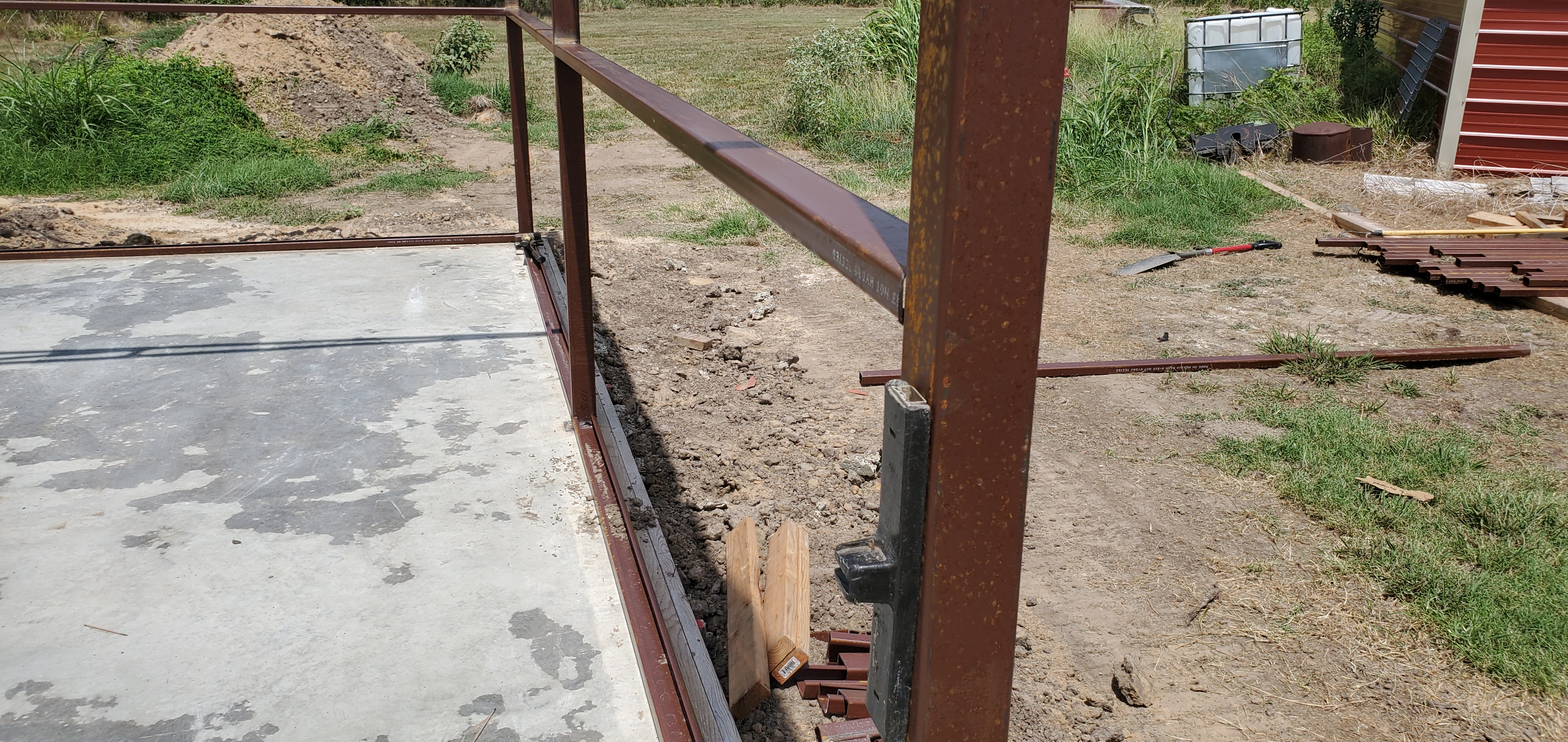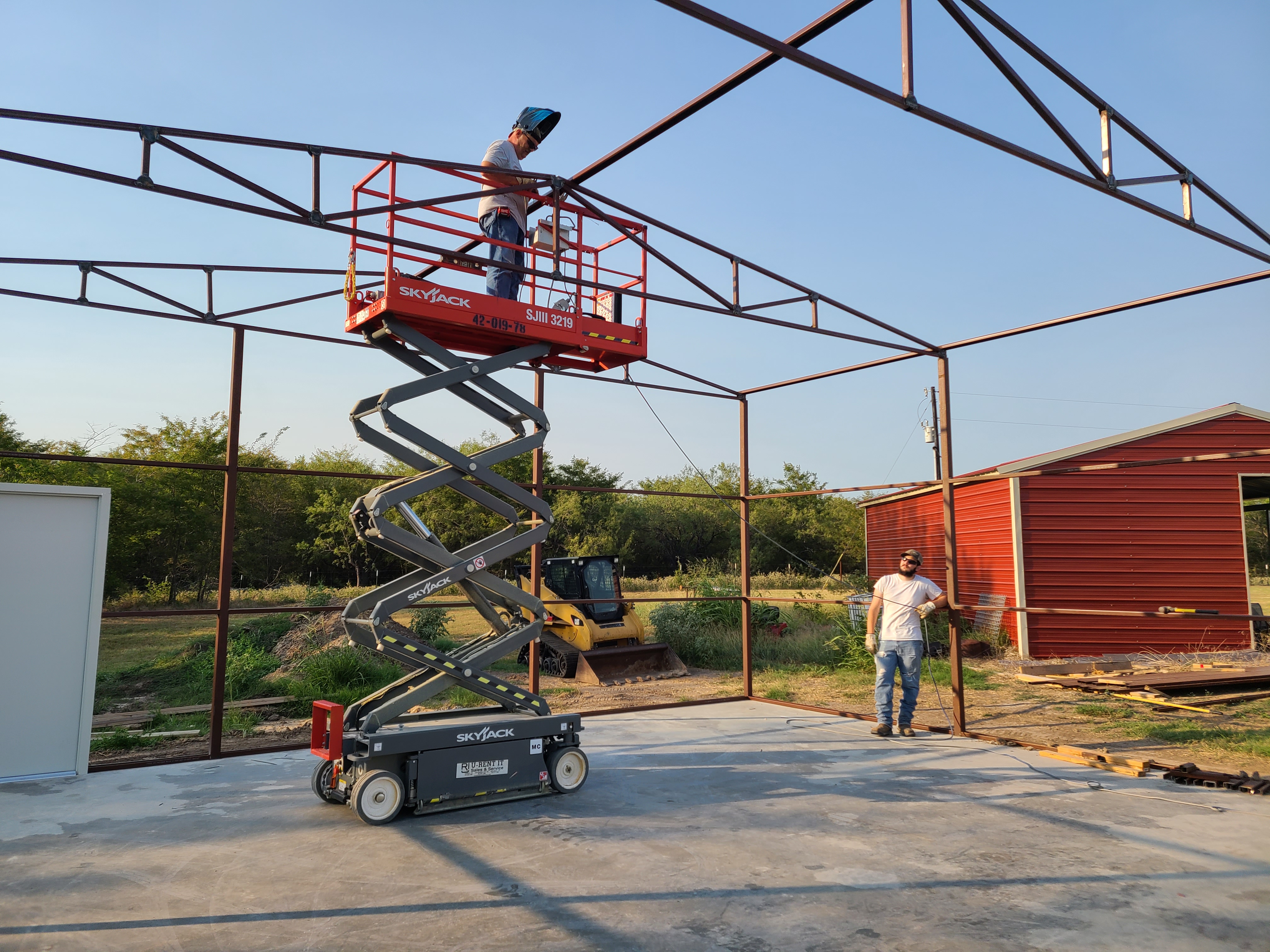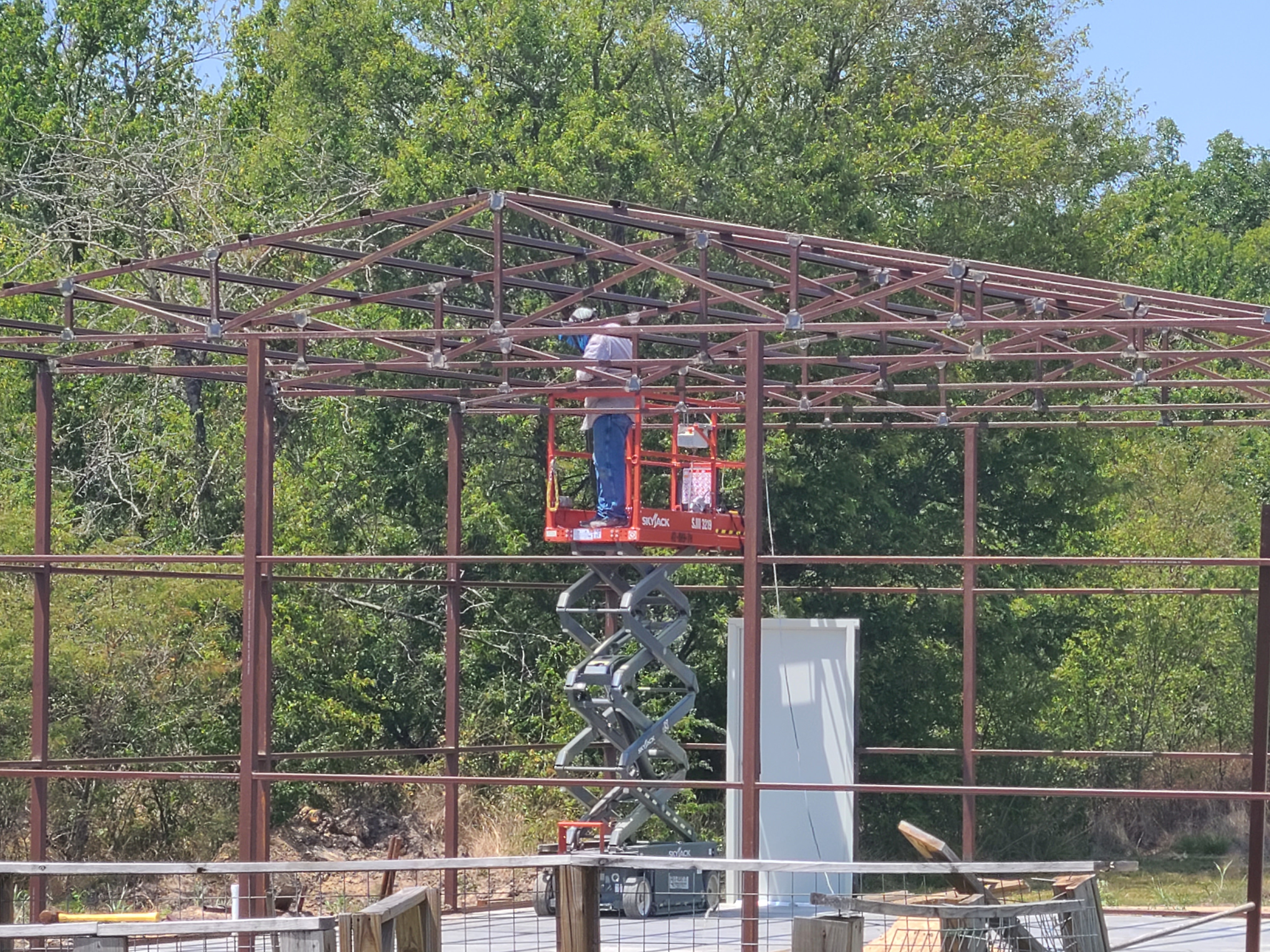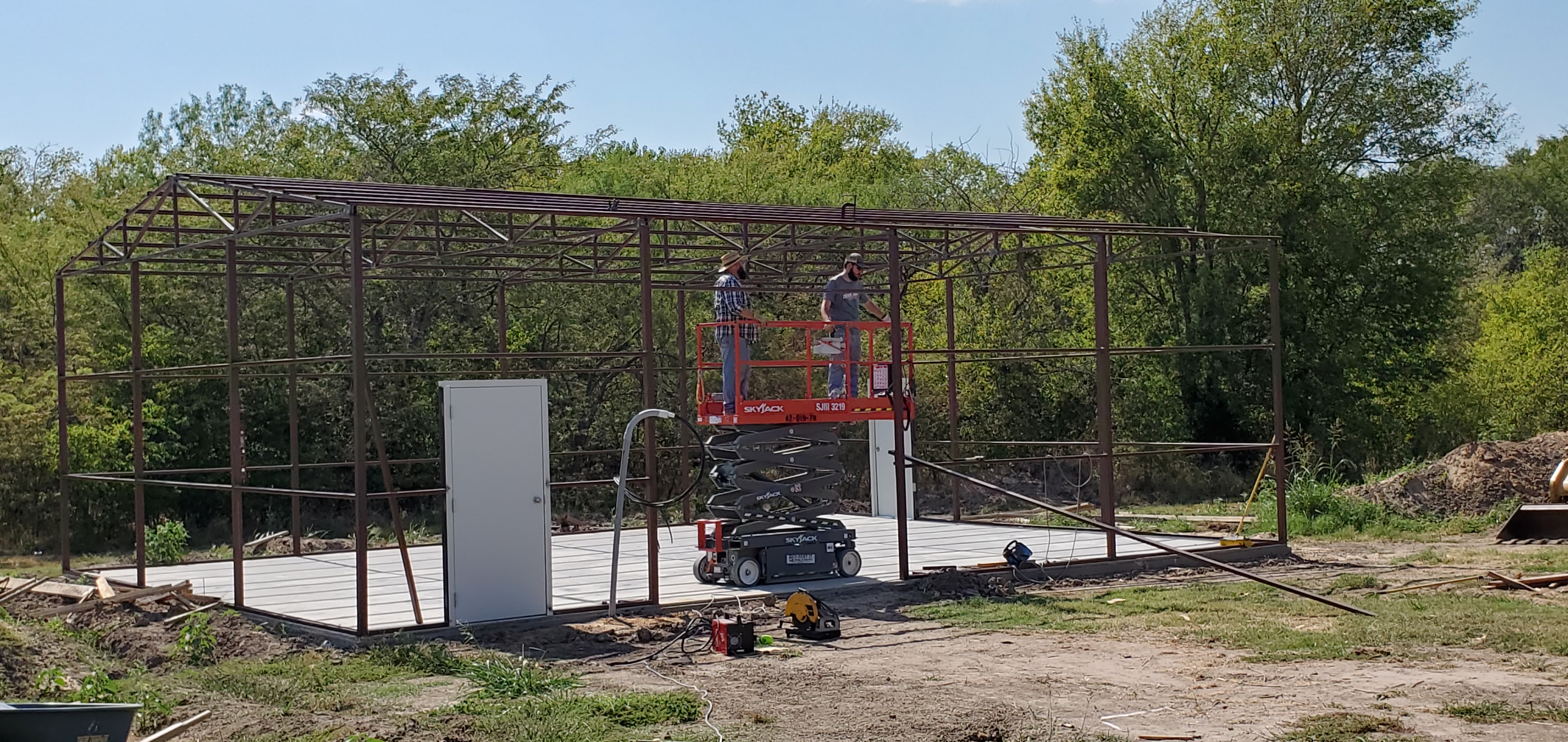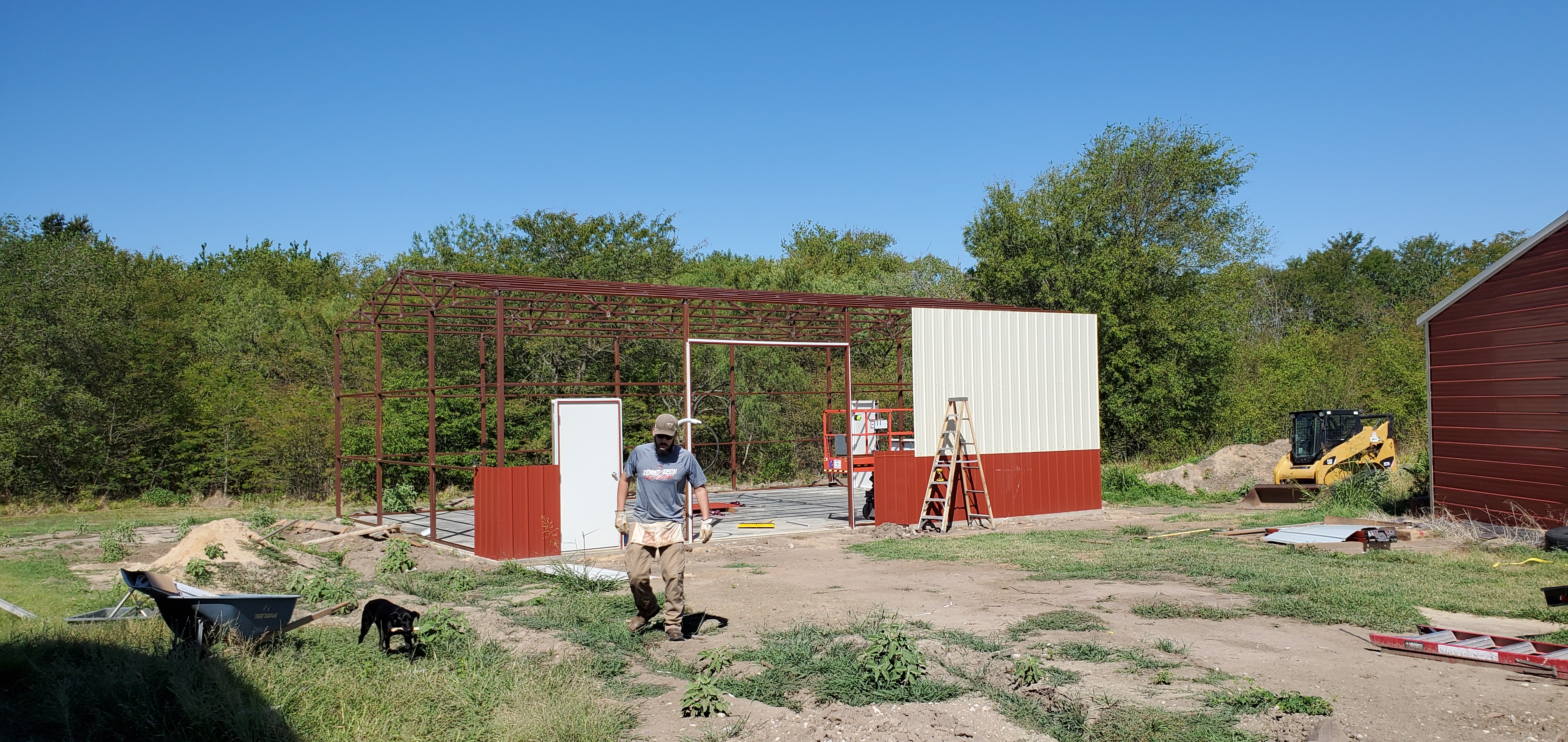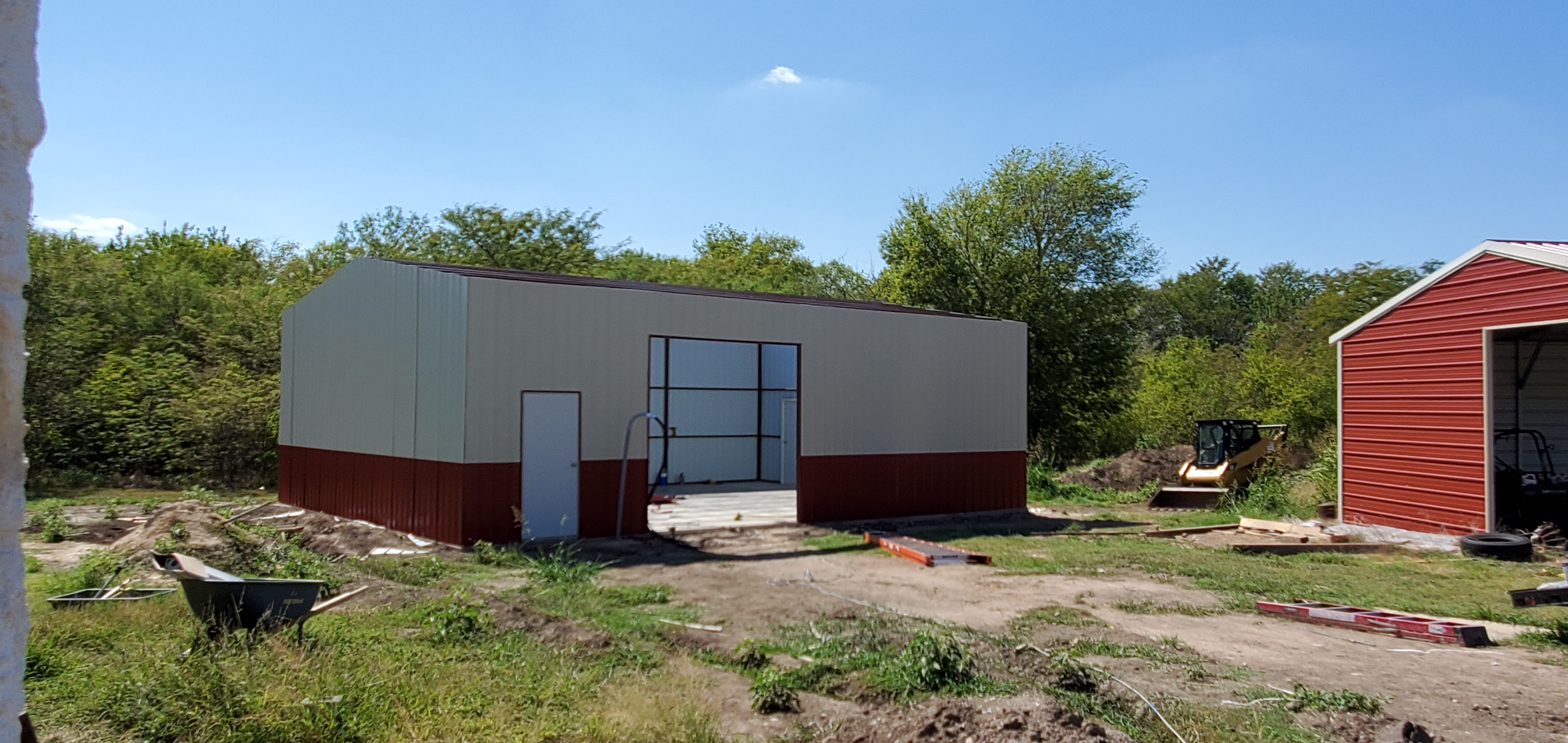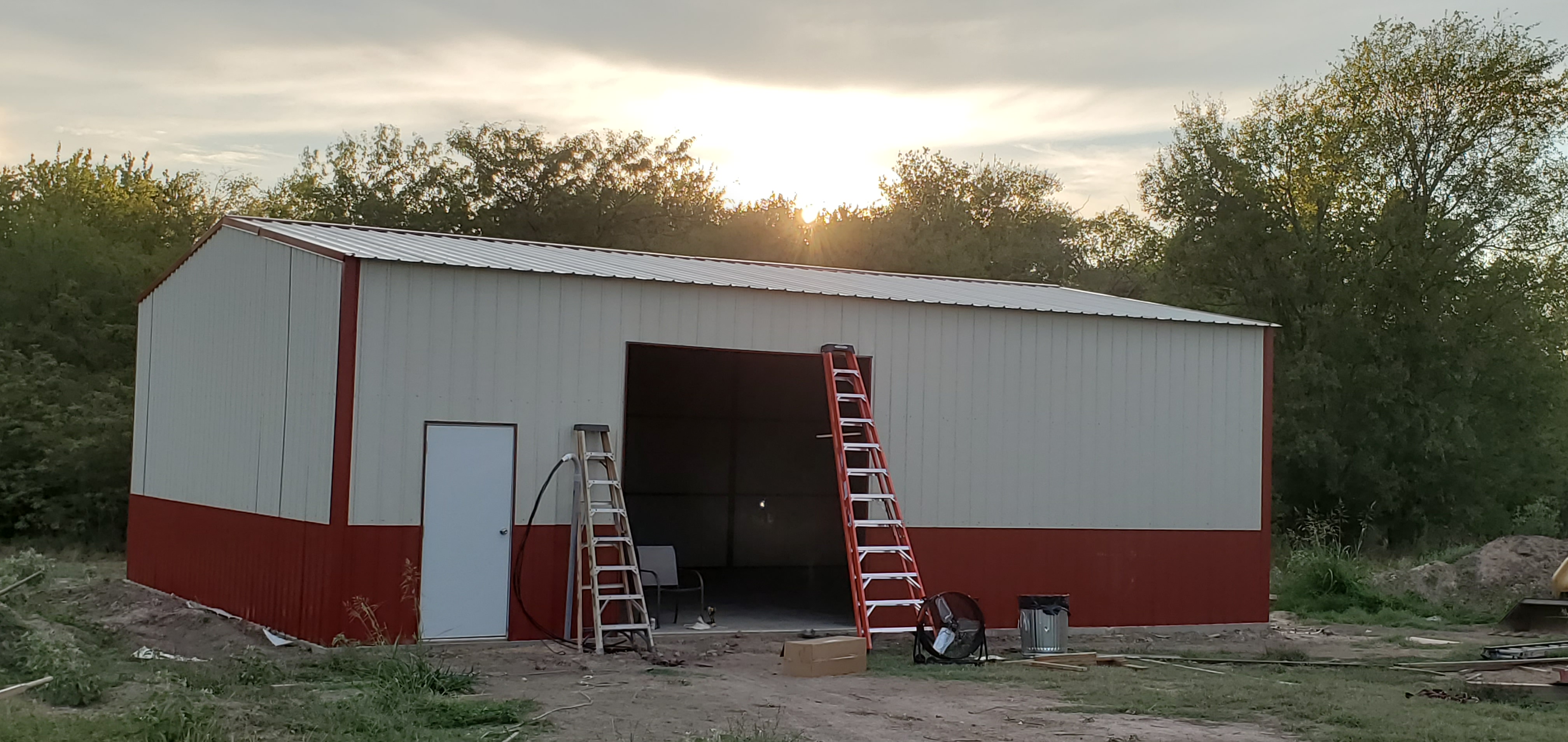Nice work. It is funny that you said that the 30x40 seemed small. It really isn't but I have the same problem when I look at the area. When we buy our property and develop it for our retirement home, I want a shop large enough to pull an RV in for storage and work, area for machine shop, wood work and of course my gunsmithing and reloading. The latter I want sealed and with clean air for that type of work. I am torn between windows for light and of course the view, but you have a good point about shop layout and environment control.
I'll show pics when I get it all done, but right now my plan is to have pretty much what you describe. I'm planning on a room sealed with a door for the machine shop, the mill and lathe specifically and associated tooling. Then another sealed room with a desk, and space for my fiber laser, basically a clean room for books and stuff.
Are you going to add a rain gutter. One thing I have always hated was coming out a door and having the rain from the roof dump on me. But then I have lived on or near the wet Northwestern Coast for a good portion of my life. You probably don't have the same concerns.
I don't mean to be rude, but would love to hear what the different items (earth work, power run, concrete, building, foam, etc) run on your project. I have been collecting data on this from many others doing the same type of work to establish a forecast for my future project.
Not planning on gutters at this time. Rain here is infrequent enough that it's not a constant problem.
Not rude at all, but my answers may not be typical. I said earlier in the thread that I was putting lots of sweat equity in this. The fact is I'm doing 90% of the labor for the entire project. My total budget for this, including the dirt work, concrete, steel, electrical and insulation, as well as framing and finish out inside is a total of $20,000.
My brother has a skid loader which I used to do the dirt work. My property is large enough and has a few terraces from when it was farmed that we didn't bring in much dirt, using native soil to build up the pad. I know lots of folks are going to say that is a bad idea, but the fact it that is what is usually done around here in my part of Texas. We compacted lifts of about 4 inches at a time. I did bring in cushion sand for the final grade under the slab. I then set all the forms for the foundation myself. I paid for the concrete and paid a crew to pour and finish. My out of pocket cost for everything to the top of the concrete (dirt work included) came out to $4.50/square foot of slab (1200sqft).
I have about $6000 in steel, which includes all the framing and siding and roof, as well as trim and screws. That is only material cost.
My youngest son is a student at Texas Tech studying Mechanical Engineering. He works for food, an apartment and tuition. He is the most expensive part of the project lol, but is not paid out of the budget. Actually he really enjoys the work. He is a rare individual that is proud of being able to work and know how to do various things. On a bit of a side note, I have had the opportunity to work with many engineers when I worked at Texas Instruments years ago. I can say that some, maybe even many of the ones I worked with couldn't turn a screw. My son is not one of those.
.....................
How thick is your insulation going to be (ceiling and walls)? What is the planned R value? In your wether you almost cannot have too much. Your biggest challenge might be keeping the concrete floor at reasonable temperature as it tends to stay at the average surrounding soil temperature.
Insulation will be spray foam, closed cell and will be 1" all around walls and roof. I have gone back and forth over how much I 'need' and how much I want to pay for. It seems in my research that the best price break was at a basic 1". I have been told by several people who have the insulation, as well as those who do the insulation that there are diminishing returns after about 1" of closed cell and 4" of open cell. I am hoping I have made a wise choice, and of course I had to stay within budget.
Did you consider few widows high up where it will not interfere with the wall usage just to get some sun light? I guess you can always add it later.
I never really seriously considered windows at all, mostly from an insulation point of view.
I bought exactly the same welder for repair jobs that carrying the heavier MIG with a C25 tank or even a 110 volt MIG with flux core wire are too bulky. Your success encourages me to practice some more with it.
What is the maximum thickness material that you used this welder for?
I have welded 5/16, but in my opinion that was pushing it. If I was planning to weld 1/4 or larger I would try very hard to use my larger machine, or at the least make several passes.


